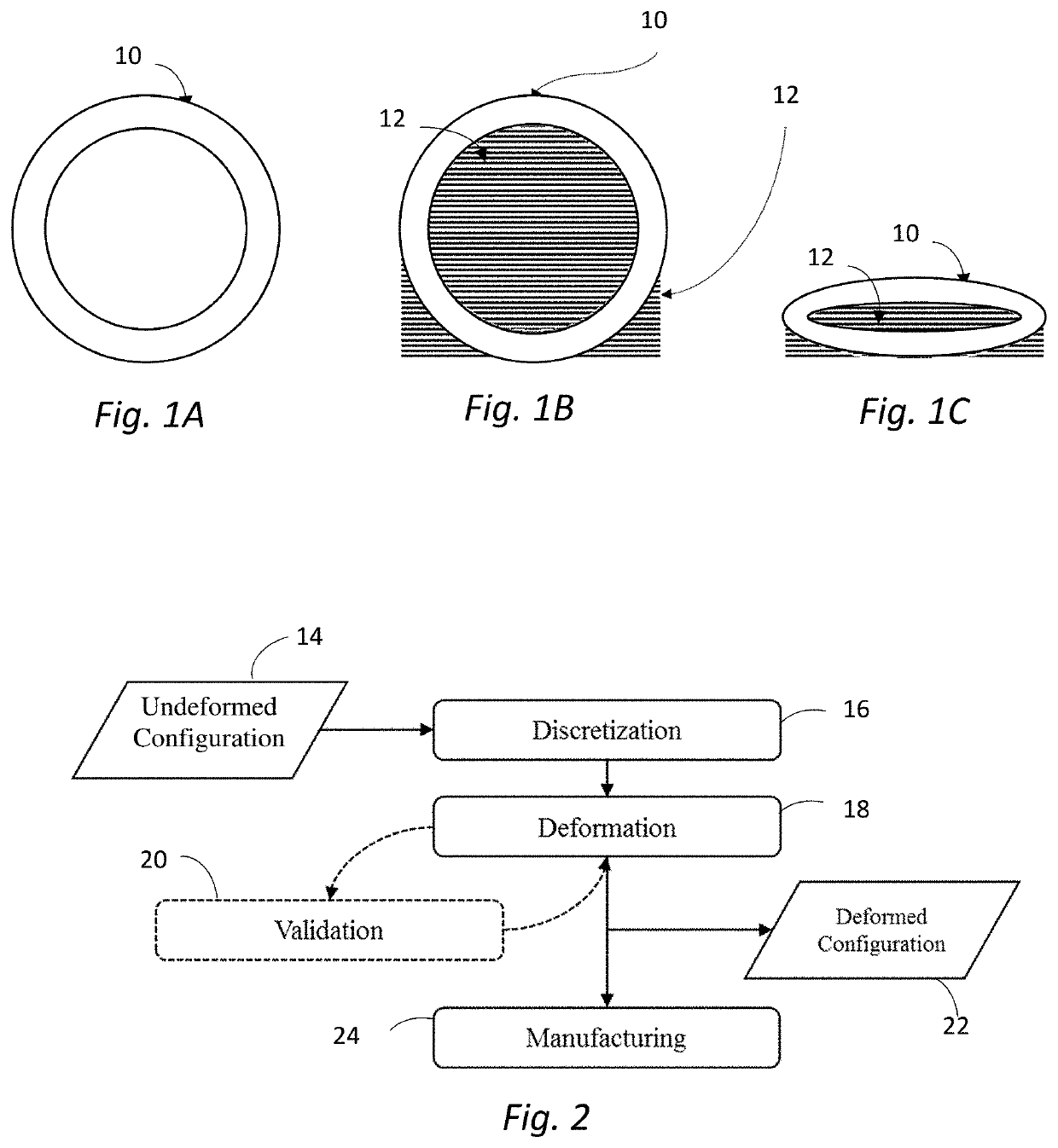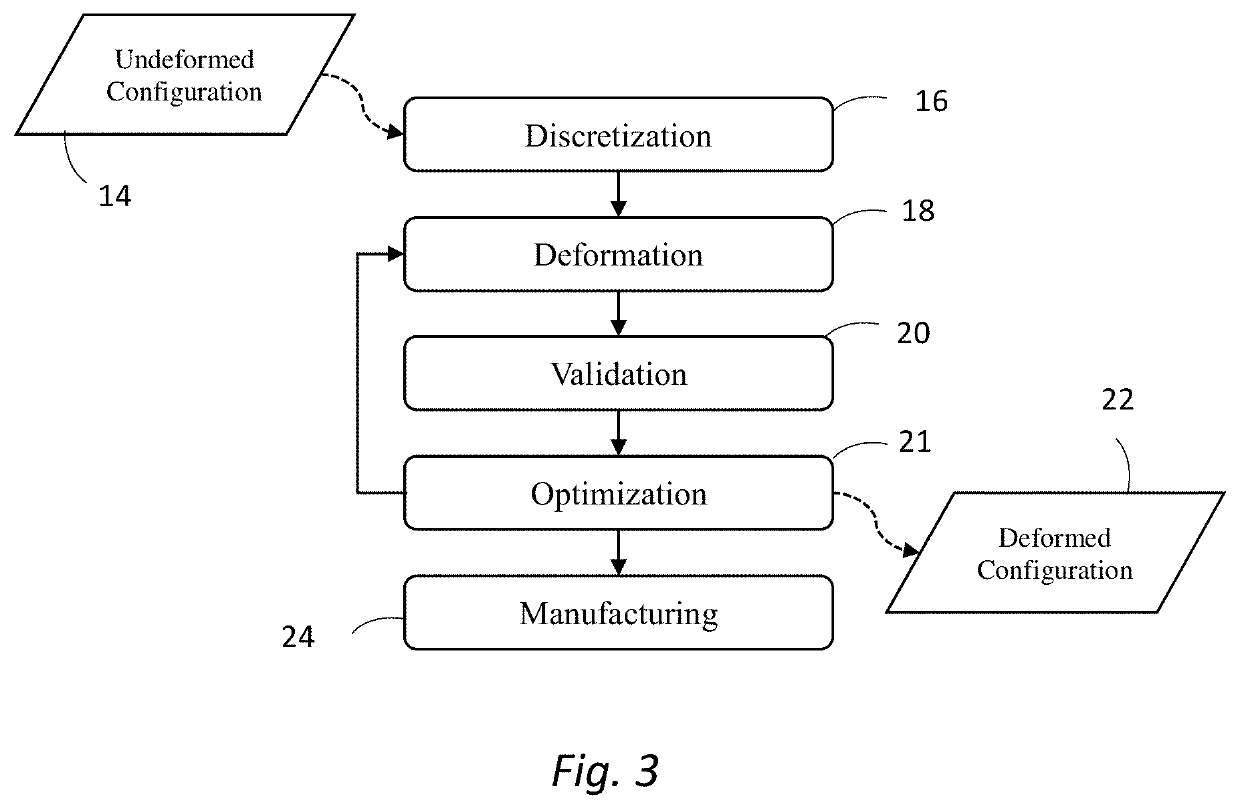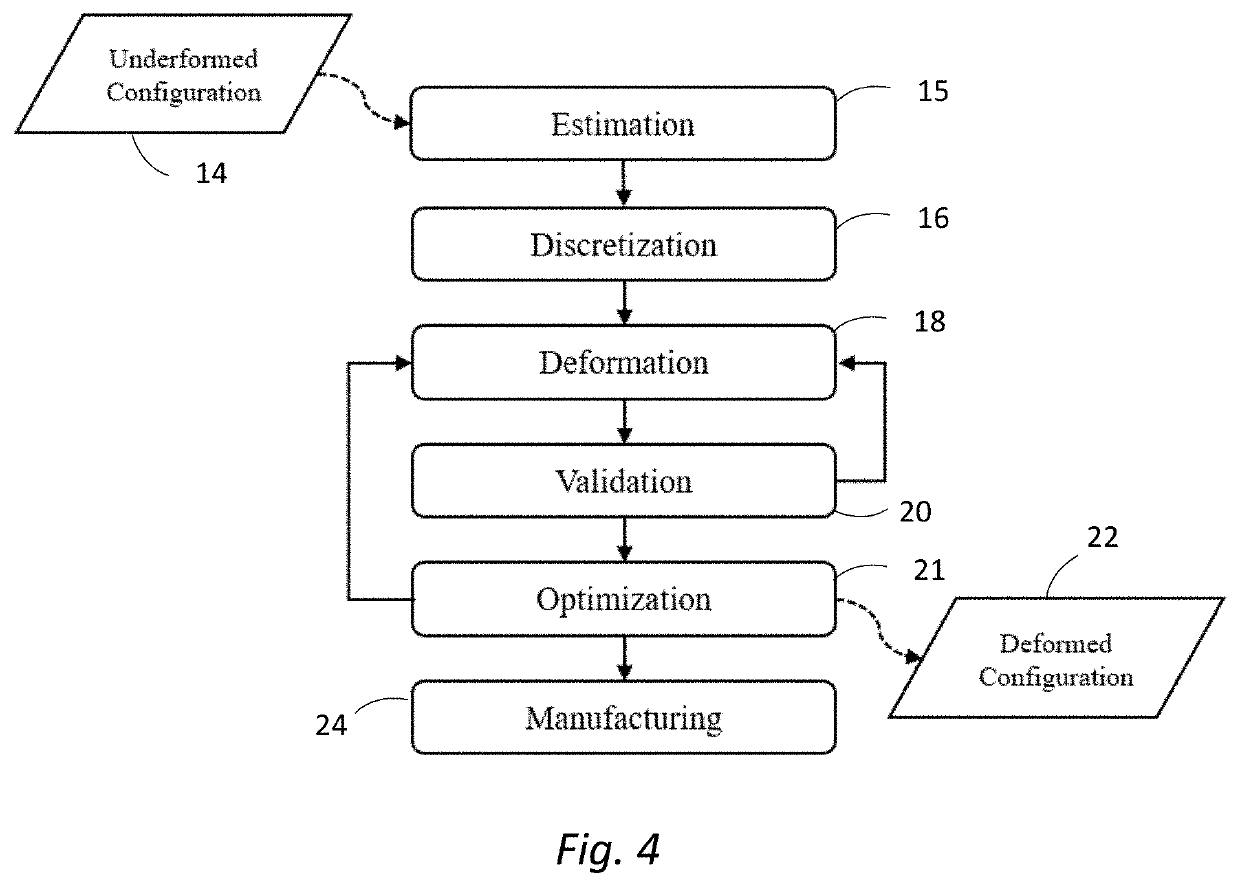Deformation-based additive manufacturing optimization
a technology of additive manufacturing and optimization, applied in the field of additive manufacturing optimization, can solve the problems of direct increase in costs of use of support materials, and affect the price of solvents, so as to reduce the amount of required support materials, reduce time and costs, and reduce the effect of supporting materials
- Summary
- Abstract
- Description
- Claims
- Application Information
AI Technical Summary
Benefits of technology
Problems solved by technology
Method used
Image
Examples
Embodiment Construction
[0037]In the following detailed description of the preferred embodiments, reference is made to the accompanying drawings, which form a part thereof, and within which are shown by way of illustration specific embodiments by which the invention may be practiced. It is to be understood that other embodiments may be utilized and structural changes may be made without departing from the scope of the invention.
[0038]As used in this specification and the appended claims, the singular forms “a,”“an,” and “the” include plural referents unless the content clearly dictates otherwise. As used in this specification and the appended claims, the term “or” is generally employed in its sense including “and / or” unless the context clearly dictates otherwise.
[0039]Referring to FIG. 1, exemplary hollow object 10 shown in FIG. 1A represents an object to be manufactured. Standard additive manufacturing requires support material 12, both in and around desired object 10, as depicted in FIG. 1B. The depicted...
PUM
| Property | Measurement | Unit |
|---|---|---|
| degrees of rotation | aaaaa | aaaaa |
| time | aaaaa | aaaaa |
| shape | aaaaa | aaaaa |
Abstract
Description
Claims
Application Information
 Login to View More
Login to View More - R&D
- Intellectual Property
- Life Sciences
- Materials
- Tech Scout
- Unparalleled Data Quality
- Higher Quality Content
- 60% Fewer Hallucinations
Browse by: Latest US Patents, China's latest patents, Technical Efficacy Thesaurus, Application Domain, Technology Topic, Popular Technical Reports.
© 2025 PatSnap. All rights reserved.Legal|Privacy policy|Modern Slavery Act Transparency Statement|Sitemap|About US| Contact US: help@patsnap.com



